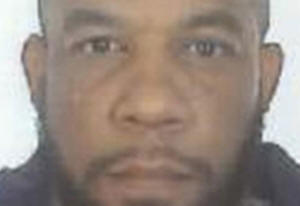|
Middle-aged London attacker was criminal
who wasn't seen as threat
 Send a link to a friend
Send a link to a friend
 [March 25, 2017]
By Michael Holden [March 25, 2017]
By Michael Holden
BIRMINGHAM, England (Reuters) - Before he
killed four people in Britain's deadliest attack since the 2005 London
bombings, Khalid Masood was considered by intelligence officers to be a
criminal who posed little serious threat.
A British-born convert to Islam, Masood had shown up on the periphery of
previous terrorism investigations that brought him to the attention of
Britain's MI5 spy agency.
But the 52-year-old was not under investigation when he sped across
Westminster Bridge on Wednesday, mowing down pedestrians with a hired
car before running into the grounds of parliament and fatally stabbing
an unarmed policeman. He was shot dead by police.
"Our investigation focuses on understanding his motivation, his
operation and his associates," Britain's senior counter-terrorism police
officer, Mark Rowley, told reporters.
A European government source familiar with the investigation said
Masood's name had cropped up about five years ago on the margins of an
MI5 counter-terrorism investigation but interest in him had swiftly
dissipated.
At the time of the attack, British authorities had "no intelligence
about how he got to this point," the source said, adding that
investigators were now rushing to piece together his background and
contacts.
The Saudi Arabian embassy in London said Masood had spent time working
in the kingdom but did not come to the attention of the security
services there. He was there for two one-year periods, from November
2005 and April 2008, when he worked as an English teacher, and also
visited briefly in March 2015.

A U.S. government source, speaking on condition of anonymity, said
although Masood's associates included people suspected of being keen to
travel to join jihadi groups overseas, he himself never did.
Islamic State claimed responsibility for Masood's attack, although it
was unclear what links - if any - he had with the militant group. Police
said there had been no prior intelligence about his intent to mount an
attack.
"An act of terrorism tried to silence our democracy," Prime Minister
Theresa May told parliament. "He took out his rage indiscriminately."
BRITISH-BORN KILLER
Born Adrian Russell Ajao in Kent, southeast of London, on Christmas Day
in 1964, he moved though several addresses in England and lived recently
in Birmingham, central England.
The Daily Mail newspaper said he was brought up by his single mother in
the town of Rye on England's south coast, later converting to Islam and
changing his name. Other media reports said he was a married
father-of-three and into bodybuilding.
Police have released few details about Masood and what might have led
him to carry out Wednesday's attack, the deadliest in Britain since four
young British Islamists killed 52 people in the 2005 London suicide
bombings.
Known by a number of aliases, he racked up a string of convictions, but
none for terrorism-related offences. His occupation was unclear.
He first came to the attention of the authorities in November 1983 when
he was found guilty of causing criminal damage. His last conviction came
14 years ago in December 2003 for possession of a knife.
"Our working assumption is that he was inspired by international
terrorism," said Rowley of London's Metropolitan Police.
Masood's age does not fit the profile of militant attackers, who are
typically younger than 30, according to counter-terrorism officers.

[to top of second column] |

A handout photograph released by the Metropolitan Police shows a
mugshot of Khalid Masood, received in London, Britain March 24,
2017. REUTERS/Metropolitan Police/Handout

Shashank Joshi, Senior Research Fellow at London's Royal United
Services Institute, said an MI5 report based on studies of several
hundred British extremists found that half were born in Britain. Few
were raised in very religious households and many, like Masood, were
converts.
"Masood is not atypical in being a British-born convert with a
criminal record. He was slightly more unusual in being older, but we
do not know how long ago he was radicalized," Joshi told Reuters.
"If it was in prison, this would be a common pathway. Given the
diversity of Islamist extremists, Masood doesn't look too unusual."
Detectives are questioning 11 people in custody, having made what
they said were two more significant arrests in central and northwest
England.
Iwona Romek, a former neighbor from Birmingham, told reporters:
"When I saw the pictures on TV and in the papers of the man who
carried out the attack, I recognized him as the man who used to live
next door.
"He had a young child, who I'd think was about 5 or 6 years old.
There was a woman living there with him, an Asian woman. He seemed
to be quite nice, he would be taking care of his garden and the
weeds."
In December, she said, he suddenly moved out.
BIRMINGHAM CONNECTION
Birmingham has been home to many British Islamists. According to a
study by the Henry Jackson think-tank earlier this month, 39 of 269
people convicted in Britain of terrorism offences from 1998 to 2015
came from the city.
There are over 213,000 Muslims in Birmingham, more than a fifth of
the population, according to the 2011 census, and there has been
growing concern about divisions in the diverse city.
Masood hired the car he used in Wednesday's attack in Birmingham
from rental firm Enterprise, and he may have rented an apartment not
far from the Enterprise offices, which were among properties raided
by armed police officers.

On the eve of the attack, Masood spent his last night in a budget
hotel in Brighton on the south coast, according to a fellow guest
who recognized him.
"Nothing in his demeanor or his looks would have given me any
thoughts that would make me think he was anything but normal," said
Michael Petersen.
(Additional reporting by Mark Hosenball in Washington; Editing by
Guy Faulconbridge, Mark Trevelyan and Peter Graff)
[© 2017 Thomson Reuters. All rights
reserved.]
Copyright 2017 Reuters. All rights reserved. This material may not be published,
broadcast, rewritten or redistributed. |